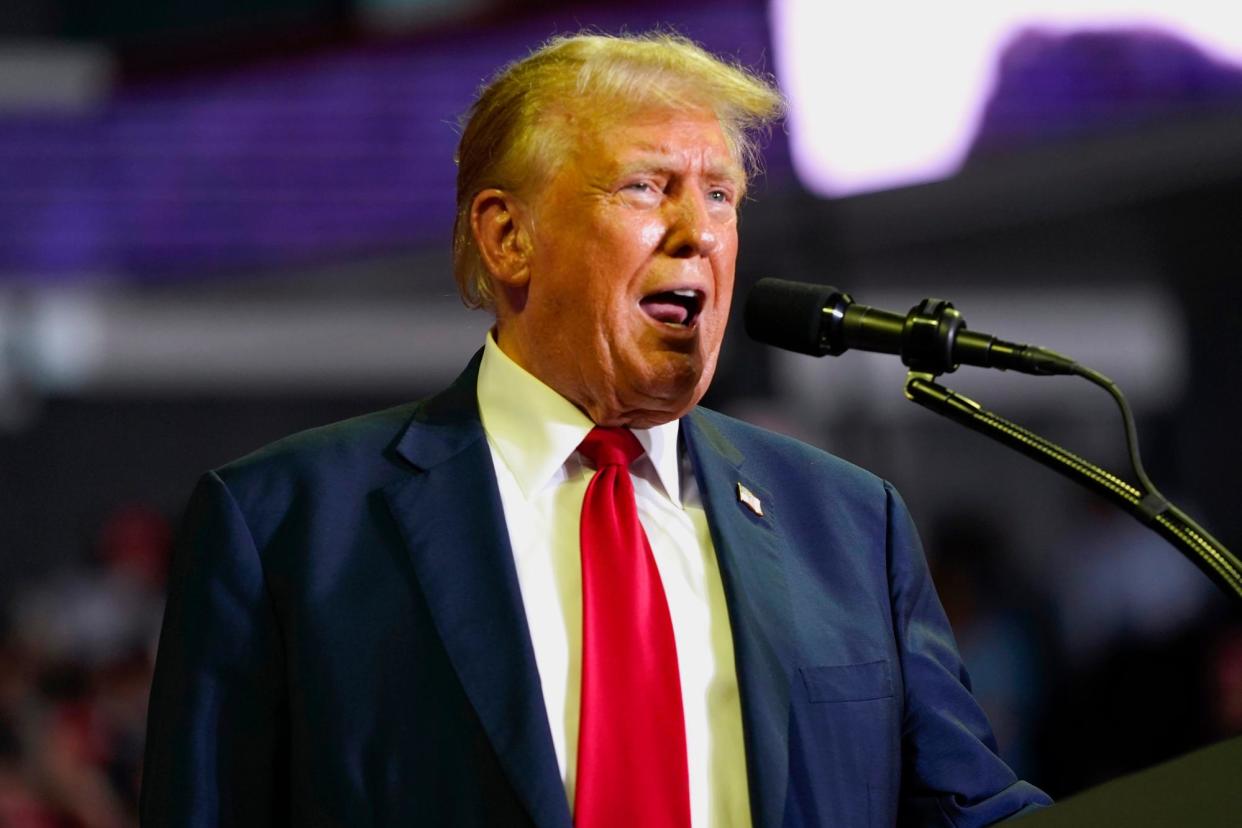New York judge partially lifts Trump’s gag order in hush-money case

The New York judge who presided over Donald Trump’s hush-money trial has partially lifted a gag order that has been hanging over the former president since he was convicted of the accounting fraud charges last month.
Under the revised order by Judge Juan Merchan, Trump is now free to criticize trial witnesses, who include Stormy Daniels and his former lawyer Michael Cohen, but must maintain restrictions on his comments about individual prosecutors and others involved in the case.
Trump’s lawyers argued in court motions that the broad gag order stifled his campaign speech, and could limit his ability to respond to Joe Biden when the two meet in the first presidential debate of 2024 on Thursday.
Related: Who will Trump pick as his 2024 running mate? A VP shortlist
They also argued Trump’s political opponents were using the restrictions as a “political sword” and that Trump was unable to respond to public attacks from Cohen and Daniels.
The office of the Manhattan district attorney, Alvin Bragg, said limits imposed on Trump’s speech about witnesses were no longer needed, but they had urged Merchan to keep restrictions on Trump’s comments about jurors, court staff and individual prosecutors “at least through the sentencing hearing and the resolution of any post-trial motions”.
The gag order, in its totality, will be terminated after “the imposition of sentence”.
Steven Cheung, a Trump campaign spokesperson, said in a statement on Tuesday that the order “leaves in place portions of the unconstitutional Gag Order, preventing President Trump from speaking freely about Merchan’s disqualifying conflicts and the overwhelming evidence exposing this whole Crooked Joe Biden–directed Witch Hunt”, according to NBC News.
Cheung added it was “another unlawful decision by a highly conflicted judge, which is blatantly un-American as it gags President Trump” and vowed to appeal it.
Merchan issued Trump’s gag order on 26 March, a few weeks before the start of the trial and later expanded it to prevent comments about his own family, including his daughter, whom Trump had said was a “part of the Democrat machine”.
After his conviction, Trump continued to test the judge’s ruling, saying he was under a “nasty gag order” and indirectly calling Cohen, his former fixer, “a sleaze-bag”.
Trump plans to appeal his conviction and denies having an alleged 2006 sexual encounter with Daniels. Sentencing is scheduled for 11 July, days before the Republican national convention in Milwaukee on 15 July to formalize his nomination as the party’s presidential candidate.
Last week, an appeals court in New York declined to hear Trump’s appeal against the gag order in the case, asserting that “no substantial constitutional question is directly involved”.
Trump’s lawyers had argued that the gag order restricted Trump’s “core political speech on matters of central importance at the height of his presidential campaign … and thus it violates the fundamental right of every American voter to hear from … [a] candidate for president on matters of enormous public importance”.
New York prosecutors opposed the appeal, urging the court to dismiss it, and cited Trump’s “well-documented history of leveling threatening, inflammatory and denigrating remarks against trial participants”.
Merchan imposed the gag order before the trial began in April, finding that Trump’s history of threatening statements posed a threat to the proceedings. Trump was later fined $10,000 for 10 violations of the order and threatened with incarceration if he continued.

 Yahoo News
Yahoo News 
